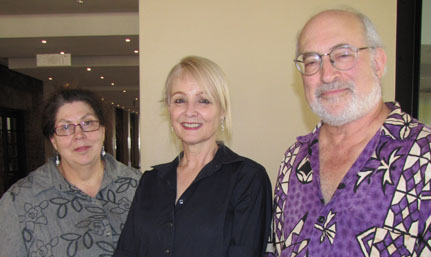Latest News Archive
Please select Category, Year, and then Month to display items
14 June 2024
|
Story Anthony Mthembu
|
Photo Suplied
 Jeremiah Hlahla, a UFS student completing his PhD in Botany at the University of Debrecen as part of an exchange initiative funded by the Erasmus+ Mobility Programme.
Jeremiah Hlahla, a UFS student completing his PhD in Botany at the University of Debrecen as part of an exchange initiative funded by the Erasmus+ Mobility Programme.
As part of an exchange initiative facilitated by the Erasmus+ Mobility Programme, Jeremiah Hlahla, a student at the University of the Free State (UFS), is nearing the completion of his PhD studies at the University of Debrecen in Hungary. Hlahla’s journey, which began in February 2024 and is set to conclude in July 2024, has been a remarkable learning opportunity. “As a first time-traveller to Europe, I have thoroughly enjoyed engaging with people from different countries and cultures,” he said.
The benefits of international collaboration
Hlahla is currently pursuing a PhD in Botany, focusing on plant stress physiology. “My current PhD project investigates the physiological, biochemical and morphological responses of vegetable-type soybean, or edamame, to combined drought and heat stress,’’ he explained. He considers the University of Debrecen the ideal institution to complete his research due to its extensive expertise and resources in similar projects. He noted that his colleagues at Debrecen conduct significant work on plant protection against biotic and abiotic stresses, including salt and drought stress, as well as proteins and amino acids in barley and other legumes.
Given the vast knowledge available on similar projects, Hlahla has found substantial engagement with his work at the University of Debrecen. “Upon arrival, I delivered an introductory lecture presenting my UFS project on the synergistic effects of combined drought and heat stress on the physiology and biochemistry of edamame. It was an engaging session as everyone could relate to my work and asked many questions,’’ he said.
Insights gained from the exchange
Hlahla has also gained valuable lessons that will assist him in his research career, including biotechnology and physiology tools. “I learned how to prepare samples and use high-performance liquid chromatography (HPLC) and reversed-phase ultra-high-performance liquid chromatography (UHPLC) to quantify proteins and amino acids,’’ he said. These techniques are beneficial not only for his current work but will also support future soybean research.
As his experience at the University of Debrecen nears its end, Hlahla reflects on the collaborations and friendships he has formed, which stand out as a significant highlight.
Australian academics present research seminar on education
2012-11-14
 |
At the research seminar were, from the left Prof. Marie Brennan, Prof. Melanie Walker and Dr Lew Zipin.
Photo: Amanda Tongha
14 November 2012 |
The Research Centre on Higher Education, Development and Capabilities recently hosted two international visitors, Prof. Marie Brennan and Dr Lew Zipin from Victoria University in Australia. They discussed future visits and research collaboration with Prof. Melanie Walker, Professor of Higher Education and Human Development. They presented a well-attended research seminar on ‘Educating for futures in marginalized regions: a sociological framework for rethinking and researching aspirations’.
Prof. Brennan and Dr Zipin have been involved in researching education for social justice in teacher education and higher education in Australia for many years. Most recently, they have been researchers on prestigious Australian Research Council projects. These include: (i) Capacitating Student Aspirations in Classrooms and Communities in a High Poverty Region, 2012-2014; and (ii) Pursuing equity in high poverty rural schools: improving learning through rich accountabilities, 2010-2012. They recently co-edited Re-positioning University Governance and Academic Work that was published by Sense Publications in 2010.